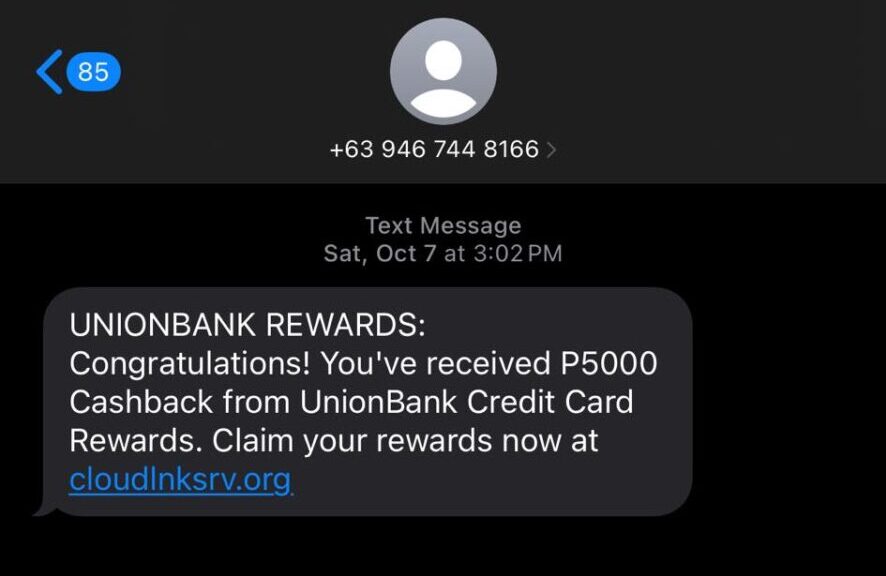Learn how to avoid, fake online banking phishing and scams
Text scams, also known as SMS scams or phishing text messages, are unfortunately common in the Philippines, as in many other countries. These scams typically involve fraudsters trying to trick people into providing personal information, money, or other sensitive data. Here are some common types of text scams in the Philippines:
- “I won a prize” scams: In these scams, you receive a text message claiming that you’ve won a prize or a large sum of money. To claim your winnings, you’re asked to reply with personal information or pay a fee. Be cautious, as legitimate contests usually don’t ask for money upfront.
- Phishing scams: These text messages mimic legitimate organizations or banks, asking you to click on a link to update your account information. The link usually leads to a fake website designed to steal your login credentials.

- Package delivery or courier scams: Scammers send messages pretending to be from delivery companies, claiming that you have a package to pick up or that there’s a problem with your delivery. They may ask for a fee to release the package or request personal details.
- Loan scams: You may receive messages offering quick and easy loans with attractive terms. These often involve hidden fees and high-interest rates, making it difficult to repay the borrowed money.
- Charity scams: Fraudsters may impersonate charitable organizations and request donations via text message. Always verify the legitimacy of the charity before donating.
To protect yourself from text scams in the Philippines:
- Be skeptical: If a message seems too good to be true, it probably is. Double-check the sender’s information and the message’s content.
- Don’t click on links: Avoid clicking on links in unsolicited messages, especially if you’re not expecting them.
- Verify: If you receive a message from a bank, government agency, or any organization, call them directly using official contact information to verify the message’s authenticity.
- Protect personal information: Never share sensitive data, such as your Social Security number, credit card details, or passwords via text.
- Block and report: If you receive a suspicious message, block the sender and report the message to your mobile network operator or the National Telecommunications Commission (NTC). https://ntc.gov.ph/text-spam-spam-report/
Text scams can be both annoying and potentially harmful. Staying vigilant and informed about common scams is essential to protect yourself and your personal information.
Previous
Online Seller Tips
You might also like
Sorry, no posts were found.




0 Comments
No Comments Yet!
You can be first to comment this post!